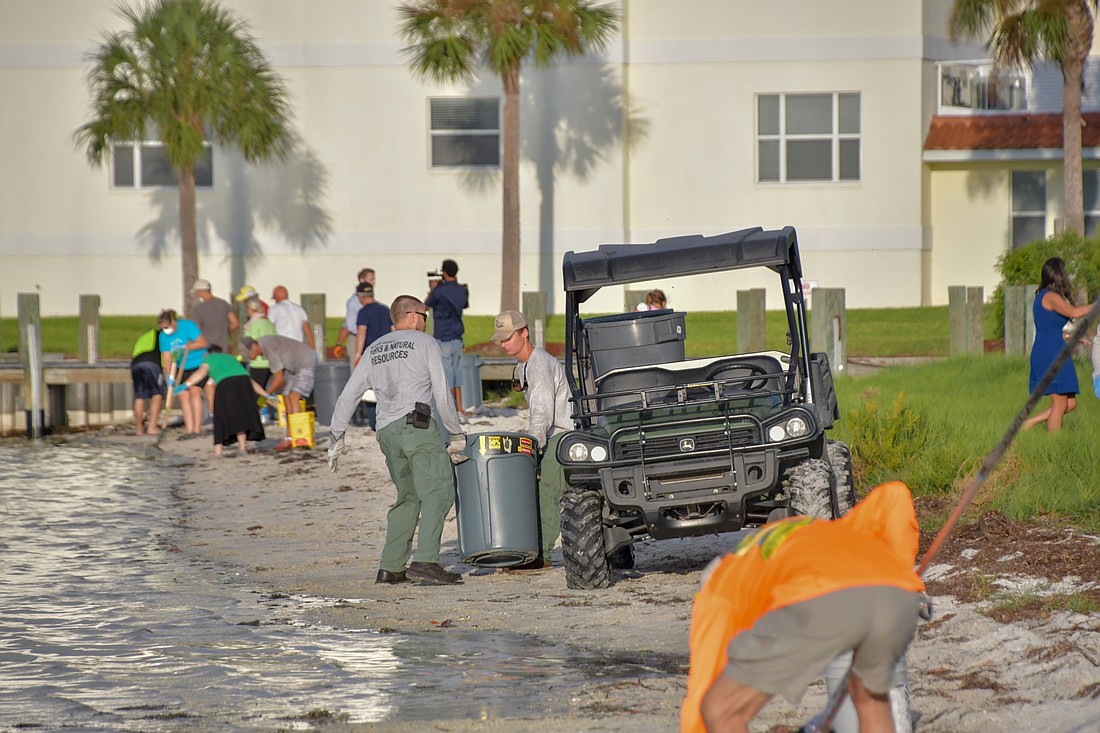- July 10, 2025
-
-
Loading

Loading

Standing at the Lena Road Landfill on Aug. 30, Manatee County Solid Waste Division Manager Robert Shankle and Landfill Superintendent Bryan White took a deep breath.
Although fumes from trash were pungent at the active dumping site about 100 yards away, the air was almost odorless where they stood, despite the fact the landfill has collected more than 241 tons of dead
fish and debris from the red tide outbreak since it began in early August.
However, when the wind blows from the west, it has brought the smell of red tide to east of Interstate 75. The odor was most pronounced Aug. 23 and Aug. 24 in East County. Shankle and White said that smell is not coming from the landfill.
“People are smelling it from the gulf,” White said, noting the smell was not from dead fish.
Red tide is an algal bloom that occurs up to 40 miles offshore. The algae is toxic to fish and ocean life, killing them, and can cause respiratory irritation in some humans if the algae becomes airborne. Although the red tide levels are down — as is the smell associated with them — researchers and county officials do not know if the red tide is dissipating or if it will reoccur.
Manatee County has placed dumpsters, nets and buckets at sites throughout the county so individuals can proactively remove dead fish from waterways.
Shankle said the landfill is disposing of the fish like it does other household trash, although workers there are making sure to bury the fish with trash as soon as they arrive. Every night, the trash is covered in dirt.
“We do this process to alleviate as much of the smell as we can,” White said.
“But not the red tide smell.” Shankle added.
White said a few people have driven to the landfill to see piles of dead fish, but without success, because they are buried immediately after being received.
Shankle said odors at the landfill have been typical, although this time of year, the rain and humidity can cause the trash to stink more than normal.
Shankle said residents also have worried toxins from the dead fish will seep into Manatee County’s water supply, but the landfill is built to prevent that from happening. Water from the garbage collects in pipes and is pumped out to Manatee County’s water treatment plant. A clay liner under the landfill prevents seepage, and a water monitoring system acts as yet another safeguard.
“The water cannot escape,” Shankle said. “The garbage we have has far more potential for toxins than the fish. (Fish) is a normal thing we’re able to accept here.”